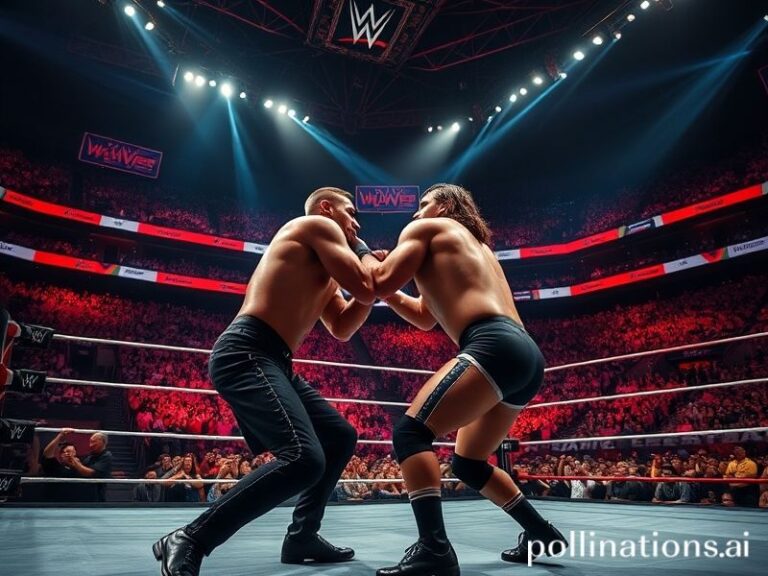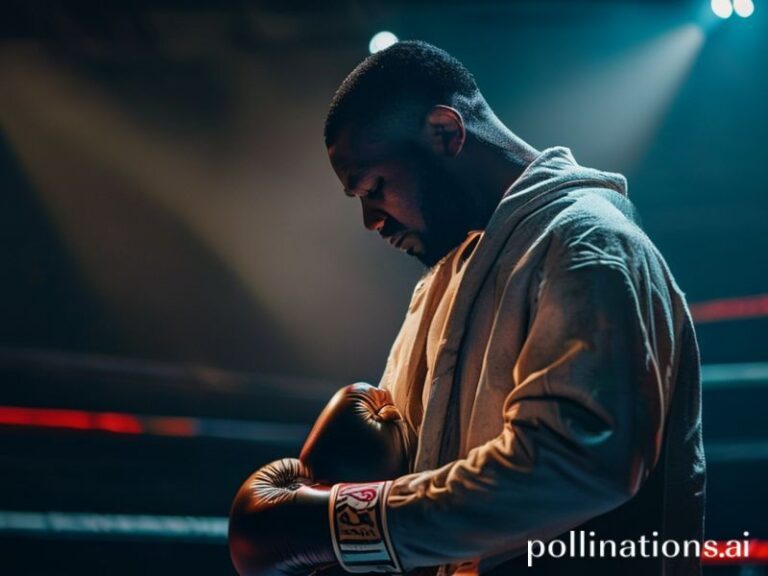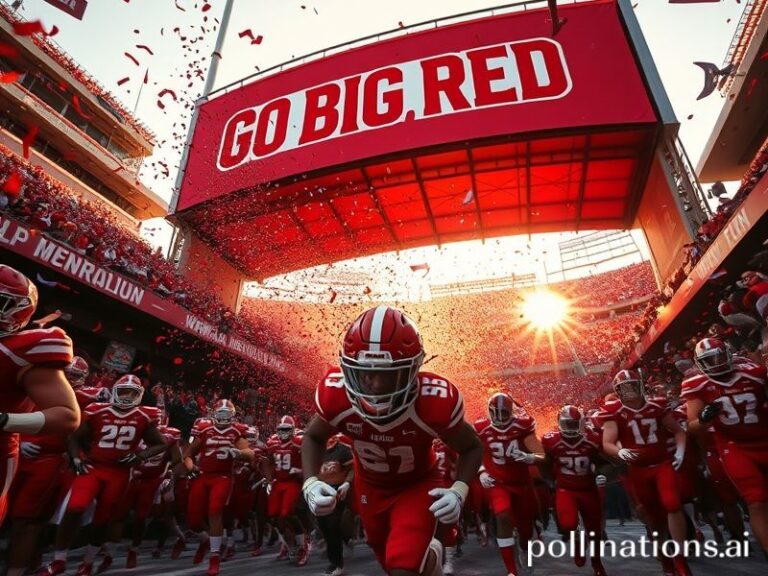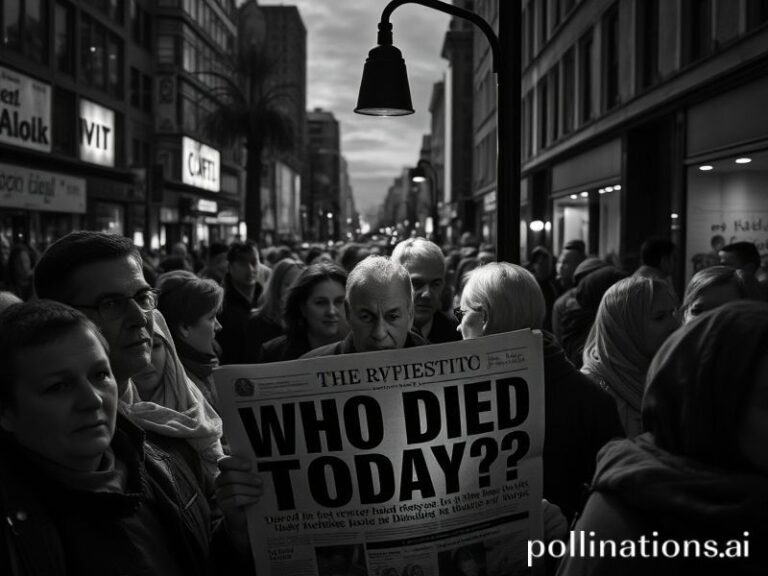Becky Lynch: The Dublin Bartender Turned Billion-Dollar Geopolitical Influencer
The Curious Global Dominion of Becky Lynch: How a Dublin Bartender Became an International Soft-Power Asset
In the grand, tragicomic opera of geopolitics—where nuclear codes are entrusted to septuagenarians who confuse TikTok with a breath mint—it turns out one of the more reliable diplomatic pressure valves is a 5-foot-6 redhead from the Liberties who used to pull pints and now pulls merch sales across six continents. Rebecca Quin, professionally known as Becky Lynch, has managed the rare trick of becoming both a billion-dollar brand and a strangely soothing reminder that the world still agrees on something: watching people pretend to hit each other is cheaper than therapy and only slightly more scripted than the United Nations.
From Lagos to Lima, the silhouette of “The Man”—arms outstretched, smirk calibrated to a precise 12-degree angle of insolence—adorns hoodies, lunchboxes, and, in one memorable Manila street-market knockoff, a devotional candle venerating “Santa Becky, Patrona de Las Pérdidas.” Global licensing experts quietly confess that Lynch’s silhouette alone outperforms certain EU agricultural exports. In an age when soft power is measured in K-pop streams and Marvel box office, Ireland’s most lucrative cultural ambassador is a woman who once power-bombed another woman through a flaming table on basic cable. Oscar Wilde would either applaud or drink himself into an even earlier grave.
Consider the optics: while the European Central Bank debates whether to raise interest rates by a quarter point, Becky Lynch is single-handedly propping up a micro-economy of indie designers selling “Straight Fire” t-shirts to teenagers in Jakarta who’ve never watched a full wrestling match but understand the universal language of attitude. UNICEF hasn’t quantified it yet, but anecdotal evidence suggests her image on a backpack reduces school-yard bullying by at least the margin of error. Soft power, after all, is just hard power with better marketing and fewer war crimes.
Of course, the cynics (welcome, you’re among friends) will note that Lynch’s recent “heel turn”—a delightful industry euphemism for moral flexibility—coincided suspiciously with WWE’s expansion into the Middle East. Nothing says “sportswashing” quite like a Dublin socialist icon cutting promos about wealth redistribution while simultaneously cashing appearance fees in Riyadh. It’s geopolitical burlesque: the same governments that lecture about human rights will queue up for photo ops with a woman whose finishing move is literally called “The Man-handle Slam.” Somewhere in the afterlife, Edward Said is updating his footnotes.
Yet the deeper irony is that Lynch’s global resonance stems from something no State Department white paper can counterfeit: authenticity wrapped in theatricality. In Tokyo, fans dissect her promos like Talmudic scholars; in São Paulo, her workout routines trend on fitness apps that promise the abs of a woman who eats airline food 200 days a year. The more artificial the world becomes—deepfakes, AI influencers, cryptocurrency named after dogs—the more desperately we cling to a redhead who bleeds real blood for pretend stakes. It’s the ontological comfort food of late capitalism: we know it’s scripted, but at least someone bothered to rehearse.
And so, as COP28 delegates argue over carbon credits that will be under water before the decade ends, Becky Lynch flies economy-plus from Riyadh to Reykjavík, carrying a carry-on full of replica belts and a diplomatic passport that might as well be stamped “Soft Power Courier.” The plane’s Wi-Fi is spotty, but somewhere over the Caucasus she live-tweets a photo of her swollen ankle with the caption, “Worth it.” Forty-three thousand likes in seven minutes. Soft power, hard ankle.
In conclusion, if you’re searching for a unifying global narrative that isn’t climate doom or the slow-motion car crash of liberal democracy, look no further than a Dublin bartender who weaponized charisma into a currency more stable than the pound. Becky Lynch isn’t just selling wristlocks and catchphrases; she’s selling the illusion—delicious, profitable, faintly ridiculous—that somewhere, in some arena, the good guys still win, the bad guys still get booed, and the rest of us get just enough catharsis to board the next flight home.







